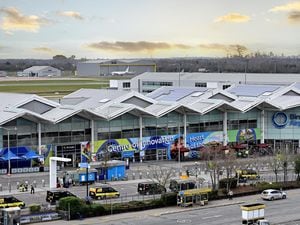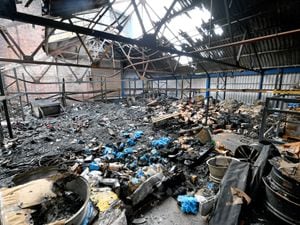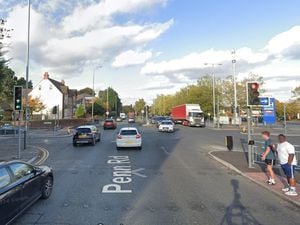Tunisia terror attack: Six hotel guards 'charged' with failure to help tourists in massacre
Six hotel security guards have been charged with failing to help tourists during the 2015 Tunisia terror attack, it has been reported.
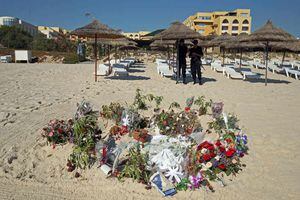
The charges come after a British judge said the police response to the attack in which 30 Britons - including three members of a Black Country family - died was "at best shambolic, at worst cowardly".
Tunisian authorities are said to have arrested a further 14 people in connection with the massacre that also left three Irish citizens dead.
Another 12 people are under investigation.
Sofian Sliti, a spokesman for judicial counter-terrorism investigations in the country, told the Reuters news agency the guards from the Imperial Hotel in Sousse had been charged with failing to help people in danger in a manner that caused their deaths.
On Tuesday Judge Nicholas Loraine-Smith ruled the British victims of the attack had been killed unlawfully at the conclusion of an inquest in London.
Among the 30 people slaughtered by Rezgui were 19-year-old Joel Richards, his uncle Adrian Evans, from Bilston, and his grandfather Patrick Evans.
Joel's younger brother Owen, then 16, survived the attack.
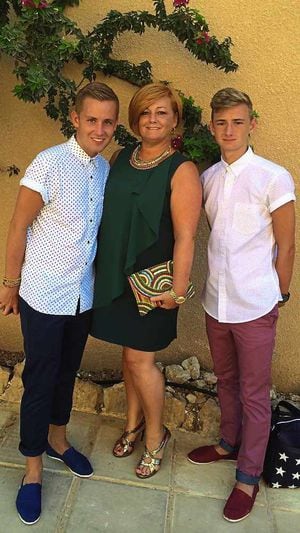
Of the many questions that needed answering during the inquests into the Tunisia terror attack, that one was crucial for the Black Country family ripped apart by the massacre.
Before 16-year-old Owen Richards, his 19-year-old brother Joel, uncle Adrian Evans, 49, and grandfather Patrick Evans, 78, travelled to Sousse in June 2015 they dubbed the trip 'a jolly boys' outing'.
The moniker was taken from their favourite TV show – Only Fools and Horses.
However, the lads' holiday turned from dream to nightmare in the space of just 12 hours.
The holiday was a chance to celebrate Owen completing his GCSEs – and for him, Joel, Adrian and Patrick to do what they loved to do: spend time together.
But the day after the quartet arrived in Tunisia, terrorist Seifeddine Rezgui's deadly plan was put into action.
A total of 38 holidaymakers – including 30 Britons – were murdered as the IS-inspired killer rampaged across the beach and through the Riu Imperial Marhaba hotel in the deadliest terror attack on Britons since the 7/7 bombings.
Rezgui robbed Owen of 'the three role models in his life, his three best friends' – that was how his mother Suzy Richards summed it up in tributes to her brother, father and son.
The six-week inquest on Joel, Pat and Adrian, as well as Sue Davey who grew up in West Bromwich, which concluded yesterday, heard some shocking evidence.
Coroner Judge Nicholas Loraine-Smith recorded that the victims were all unlawfully killed – while security lapses played their part in the scale of the atrocity.
The response of the Tunisian police, in particular, allowed the gunman to patrol around the hotel and beach area with freedom.
The coroner's description of the police as a combination of 'shambolic and cowardly' was one of the few occasions when he specifically criticised a particular body.
It is perhaps not surprising that Judge Loraine-Smith saved such criticism for the force, however, given the catastrophic decision by some officers to re-route away from the scene to stock up on weapons – even though, the coroner said, they were already well equipped to handle the lone gunman.
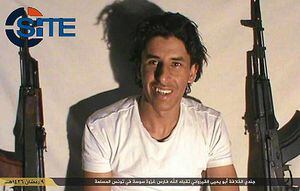
The court also heard there were also only six CCTV cameras in and around the hotel – two of which were not working – and no camera control room.
Meanwhile, the three security guards at the hotel complex were ill-equipped to deal with an attack of this magnitude.
One fainted after being paralysed by fear and then hid, while two did not have mobile phones so could not inform authorities about the attack unfolding.
The coroner highlighted one area which could have reduced the scale of the slaughter, but this was sadly not feasible, he said.
Judge Loraine-Smith said: "One security measure which could have had a dramatic effect would have been armed guards at the premises."
But this was not possible given Tunisian gun laws.
It was clear from the first day of the inquests that the deliberately delayed response of the Tunisian police had been a major contributory factor.
A dossier compiled by a top judge in the north African country found security should have been able to intervene to take down Rezgui earlier than they did – but they wasted a 'considerable amount of time' getting to the resort.
Counsel to the inquests Samantha Leek QC said: "The most compelling evidence comes from the Tunisian judge.
"His report says police units should have intervened and deliberately and unjustifiably slowed down to delay arrival at the hotel. A witness particularly refers to tourist security which had the capacity to put an end to the attack but wasted a considerable amount of time getting to the hotel."
Later on in the course of the inquest, it emerged that security at hotels in the resort had also been criticised in a report for the British Government just months before the 38 people were killed.
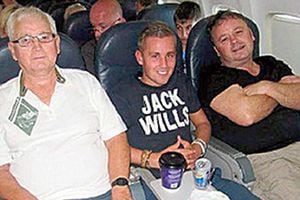
The resort had previously been targeted by a suicide bomber in October 2013, who killed only himself, the inquest heard.
Andrew Ritchie QC, representing 20 victims' families, told the inquest the Government was aware that IS-linked extremists had warned the terror group would target tourists after a video was posted on YouTube in December 2014.
In fact, Rezgui and his terror cell specifically targeted the Imperial Marhaba.
Judge Loraine-Smith said the cell was looking for 'an easy target for an attack and identified the Riu Imperial Marhaba because there were a considerable number of foreign tourists and only a few Tunisians there'.
During evidence, the inquest heard one of the problems in the run-up to the slaughter was the fact official guidance for tourists travelling to the country had not been updated to the highest level – advising against all travel – despite a terror attack on the Bardo Museum in Tunis in March 2015 that killed 24 people, including 20 tourists.
Before Owen, Joel, Adrian and Pat travelled to the country guidance said there was a 'high risk of terrorism' but did not directly discourage foreign tourists from travelling to the country.
In fact, according to Mr Ritchie, one Briton who survived the attack had been assured it was '100 per cent safe' to go to Sousse by a travel agent when he booked – just weeks after the earlier deadly museum attack.
The inquest heard how Paul Thomson booked a stay in the Mediterranean resort after being told the Bardo attack was a 'one-off', Mr Ritchie said in one bout of cross-examination.
The lawyer told the inquest Mr Thomson had gone to a TUI shop in his home town of Ilkeston, Derbyshire, in May 2015 with his daughter.
She had read about the attack on the Bardo Museum in Tunis and asked staff in the shop 'is it safe?', Mr Ritchie said. He went on: "(They were told) 'It's 100 per cent safe, this is a one-off'.
Evidence
TUI disputed this evidence, with an operator saying they would never say somewhere was completely safe.
The inquest also heard the travel operator failed to inform customers where to find travel advice after a previous attack on the museum.
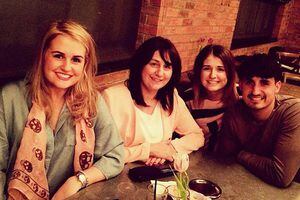
TUI UK's managing director Nick Longman said last night: "What happened on that tragic day on June 26, 2015 in Tunisia shocked and devastated all of us.
"Our immediate heartfelt condolences went to the families and friends of those so tragically affected. On behalf of everyone at TUI UK, I would like to again extend our deepest sympathy.
"We are so very sorry for the pain and loss those affected have suffered.
"Over these last few weeks we have heard very personal and very moving accounts of what happened during and after the terrorist attack.
"We have played a full and active role throughout the process of the inquests and we, like others, wanted to understand the specific circumstances surrounding these tragic events.
"We have now heard the coroner's findings and his comments regarding the provision of security and visibility of travel advice.
"These are complex matters and we have already taken steps to raise awareness of the FCO's Travel Aware campaign.
"Together with the travel industry in light of these comments we must now take some time to further reflect on these areas.
"On that day the world changed. As an industry we have adapted and we will need to continue to do so.
"This terrorist incident has left its mark on all of us and its impact will always be remembered."

